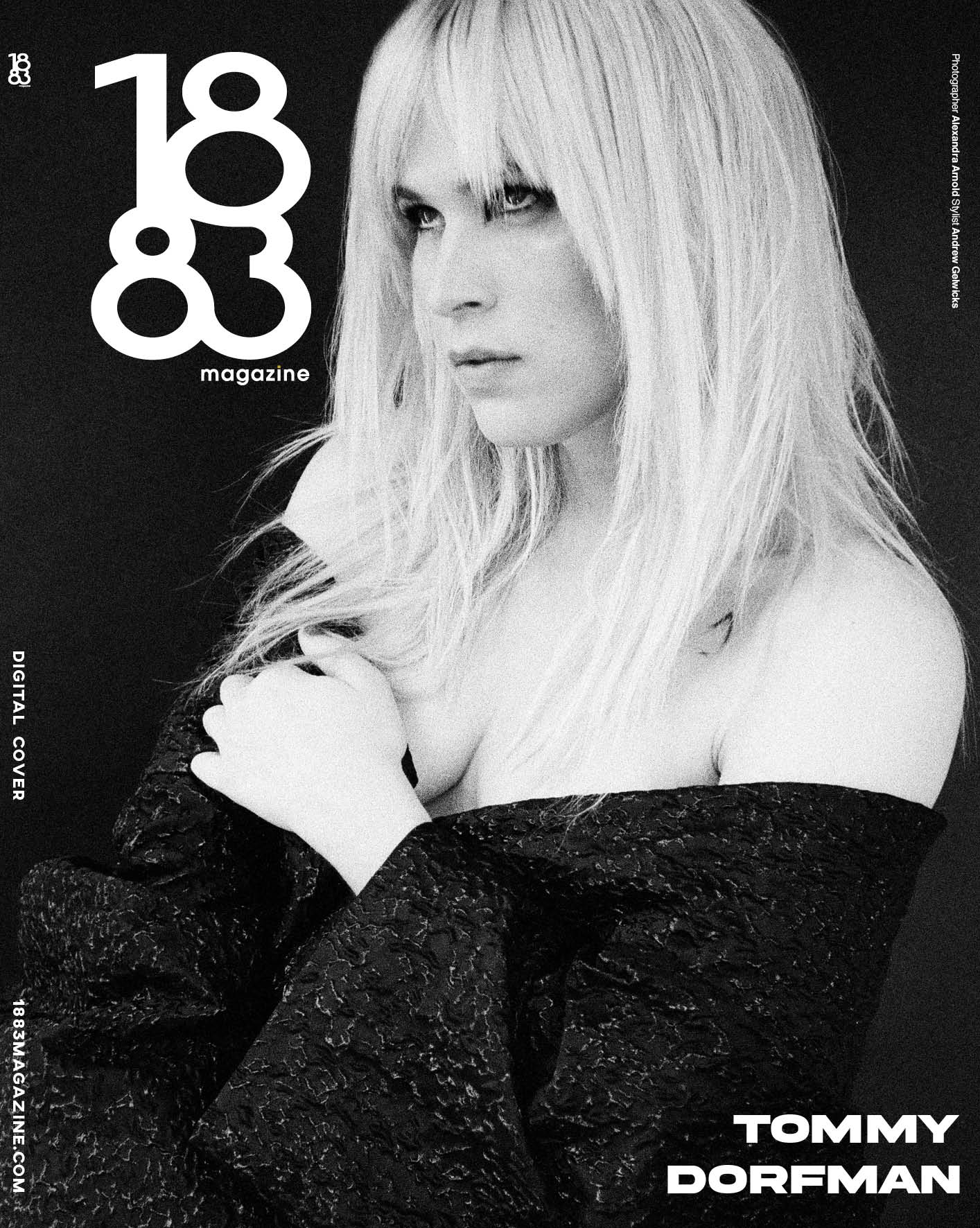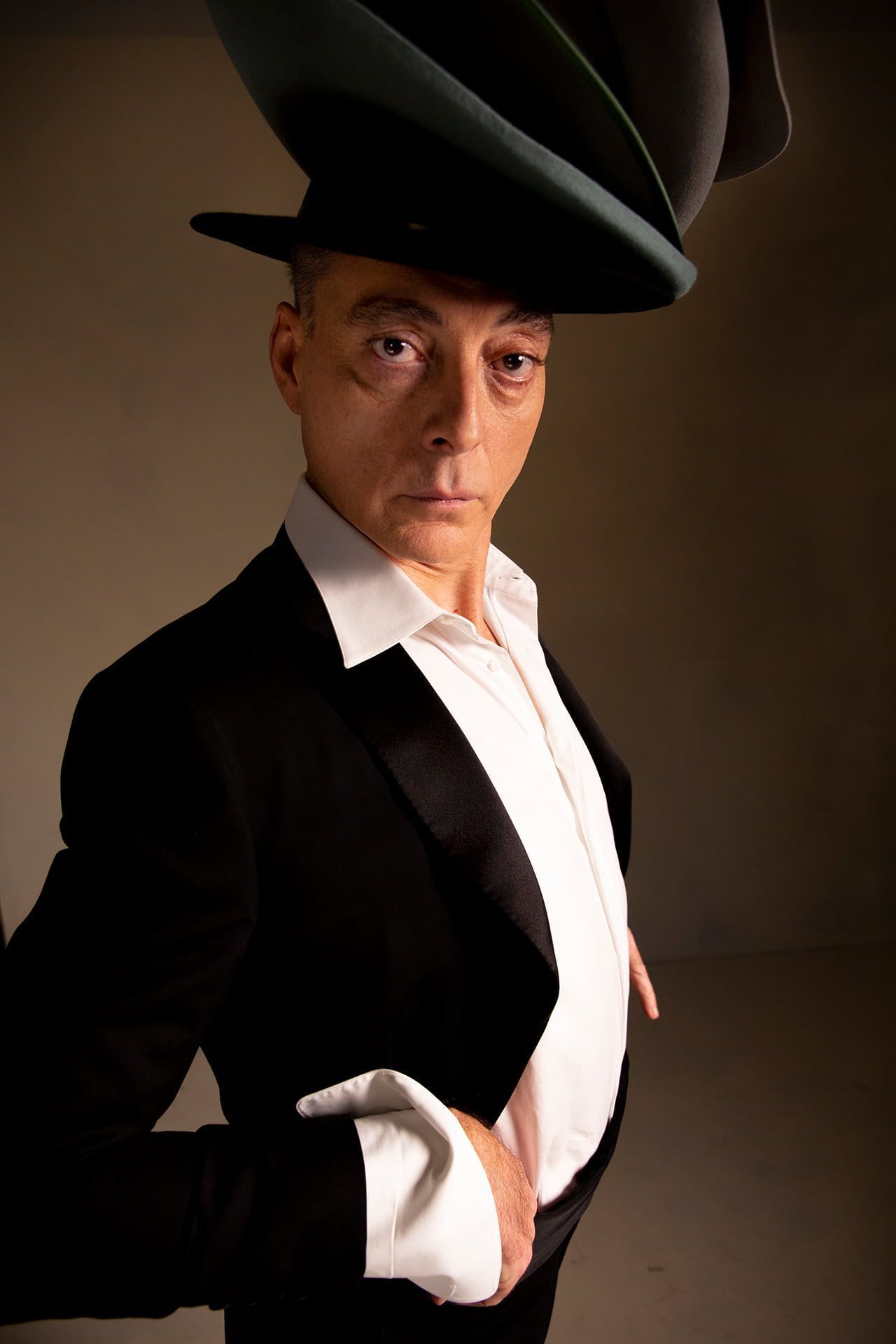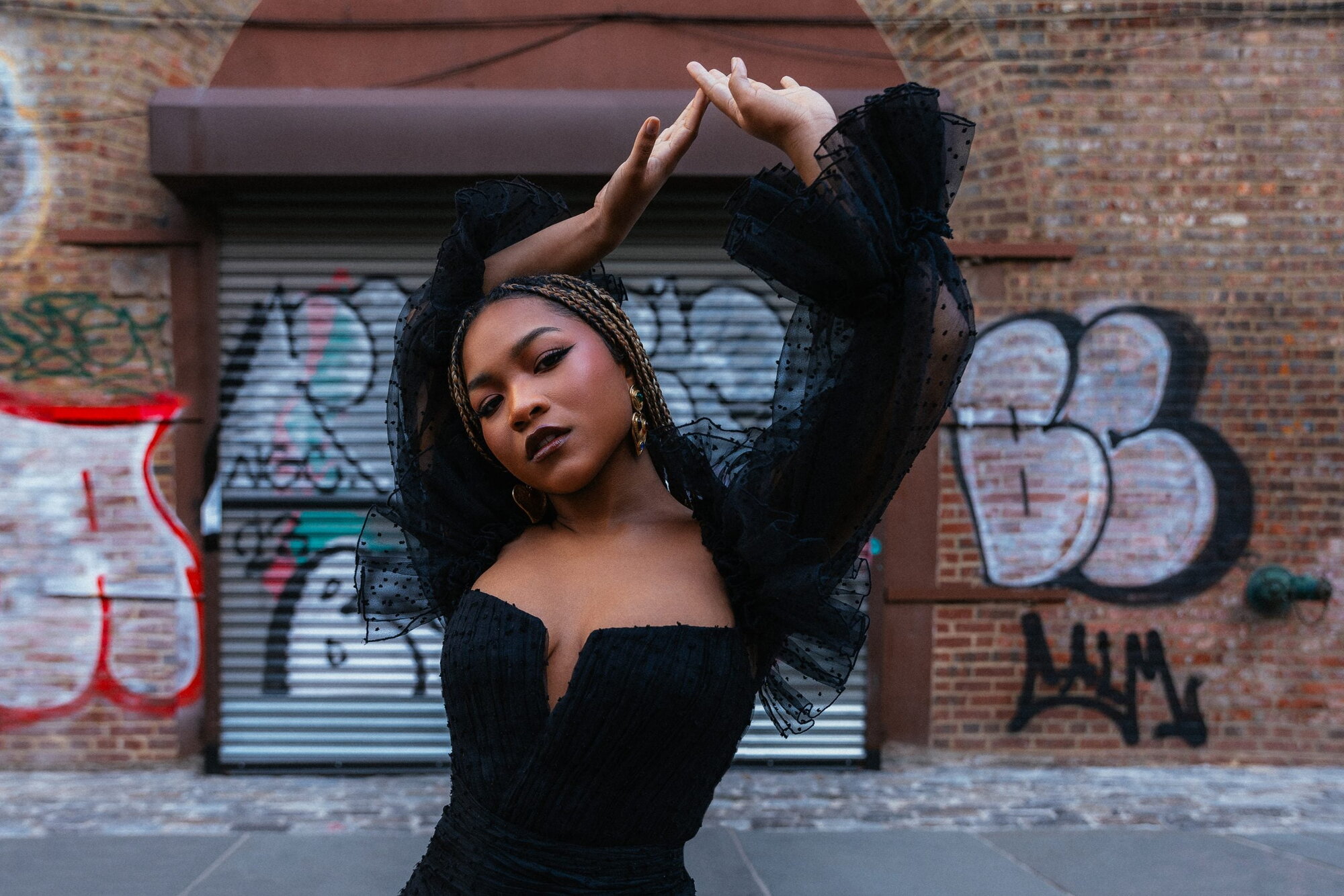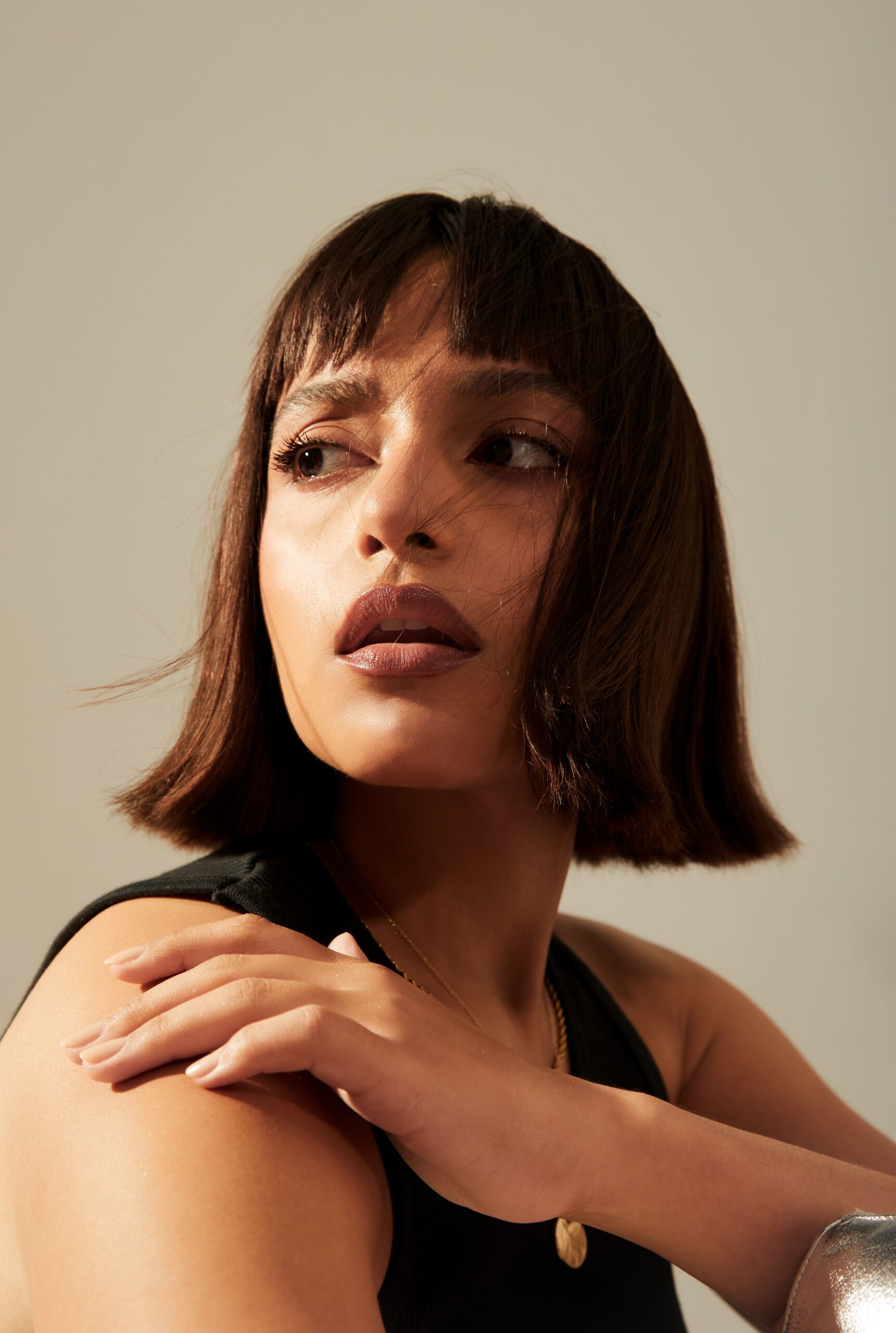
Coral Peña
In the last two seasons of For All Mankind, Coral Peña has taken her character Aleida Rosales from a shy young girl mourning the loss of her mother and illegally crossing the Mexican border into the US with her father, to becoming a lead engineer and Flight Director for NASA.
Season Three of the hit show saw Aleida grappling with the suspicion that her mentor, Margo has betrayed NASA to the Russians, her confrontation disrupted by an emergency on Mars, and not again addressed because of a huge explosion in which Margo is assumed dead (we the audience see that she is not)
Coral Peña took on the not-so-easy task of taking on an older version of a beloved character that had been introduced to us in the first season of the hit show. She quickly won viewers over with her tenacity and her rebellious edge. 1883 Magazine’s Amelia Walker talks to the actor about her growth over the seasons and that explosive finale.
The Season Three finale was huge, we are in a completely different place emotionally and literally (the last few moments of Season Three flash forward in time to the 2000s) Season Four is now officially underway, but I’d like to look back at how your character Aleida has navigated her way through Season 3, it’s been such a pivotal season for her, but first I want to see how you felt after that finale?
They don’t let you breathe at all! The tension was building all around and there was a moment of “okay, this is major, this is a finale!” there’s not a second a single human gets to breathe. It’s very heavy. From the moment Aleida realizes it was Margo, I kept listening to the theme from the show The Leftovers, there are different variations of that theme (by Max Richter) that appear throughout every single season all compiled into one youtube video that’s like 30 minutes long. I just listened to that on a loop and that put me in whatever place I felt like I needed to be because energetically that feeling you get after an episode of The Leftovers is what I felt like at the end of this finale. I’m not sure why, there’s some overlap thematically but that feeling of feeling weird and sort of like “nobody talk to me for a second” you don’t necessarily feel sad but you feel very raw and open, that’s what I felt like.
I think Damon Lindelof sometimes used to call it ‘the Richter’ and would be like “here, we’ll put the Richter in.” What I like about that theme and that sort of overlap with how I was feeling with the finale is that there is this little twinkle of growth and hope somewhere in that theme. It’s not just sad, and I think that mirrors the show with it being so heavy. This season ended on a much heavier note, with not having a ‘here’s a cool science look of the future’ as the others had, it’s a much more personal and political note. Also, ending with a Radiohead song, it’s never good when your last song of the season is a Radiohead song! Nothing good can come of that! But I feel like there is still a twinkle of hope somewhere in there, maybe this is a chance for everyone to start anew. This show is constantly trying to remind people that in dark spaces, there is always this new opportunity.
That’s interesting because I think so much of the show is about loss and things being born from so much loss, on a personal level and a national level. The theme of loss is interwoven throughout and Aleida’s whole story started with the loss of her mother at such a young age, the loss of her home country (her and her Father illegally crossed the Mexican border into America in Season One) the loss of her Father as he is in what appears to be the early stages of dementia, she lost her respect for her mentor, Margo after realizing she was the one leaking confidential information to the Soviets, and now she thinks that Margo is dead. How do you feel Aleida is feeling and coming to terms with that?
I think there’s like a wave that happens with major traumatic events. Whether it affects multiple people or one that affects individuals personally. This one’s different in the sense that it permanently removed self several people from her life and one of them is someone that she relied on heavily, who was her surrogate mother. So in the immediate aftermath, she is pivoting, she’s taking the opportunity to pivot and say “okay, maybe I’ll focus on the fact I don’t know when people are going to come in and out of my life, and I can’t expect them to just be there and neglect them, so I’m going to pivot and focus on my family” as someone who’s working on the first two episodes of Season Four right now, I think they have done a good job of showing the stages of grief. You find her a decade later in whatever stage of grief she’s in then but there was a shock and then a calmness. I don’t want to put someone else’s life out there but there was someone who was present in a real-life bombing and when we asked them “how do people react” they said that it was as if everyone was extremely calm, the whole time, everyone was just calm. I think long story short, that’s I think what you see immediately is Aledia’s calm and zen, mostly out of shock and mostly out of the fact that she’s grateful for the people in her life that are still alive. But that can only last so long before you have to face the grief. So immediately there’s hope and then there’s grief, that hopefully leads to hope, but there is grief coming.
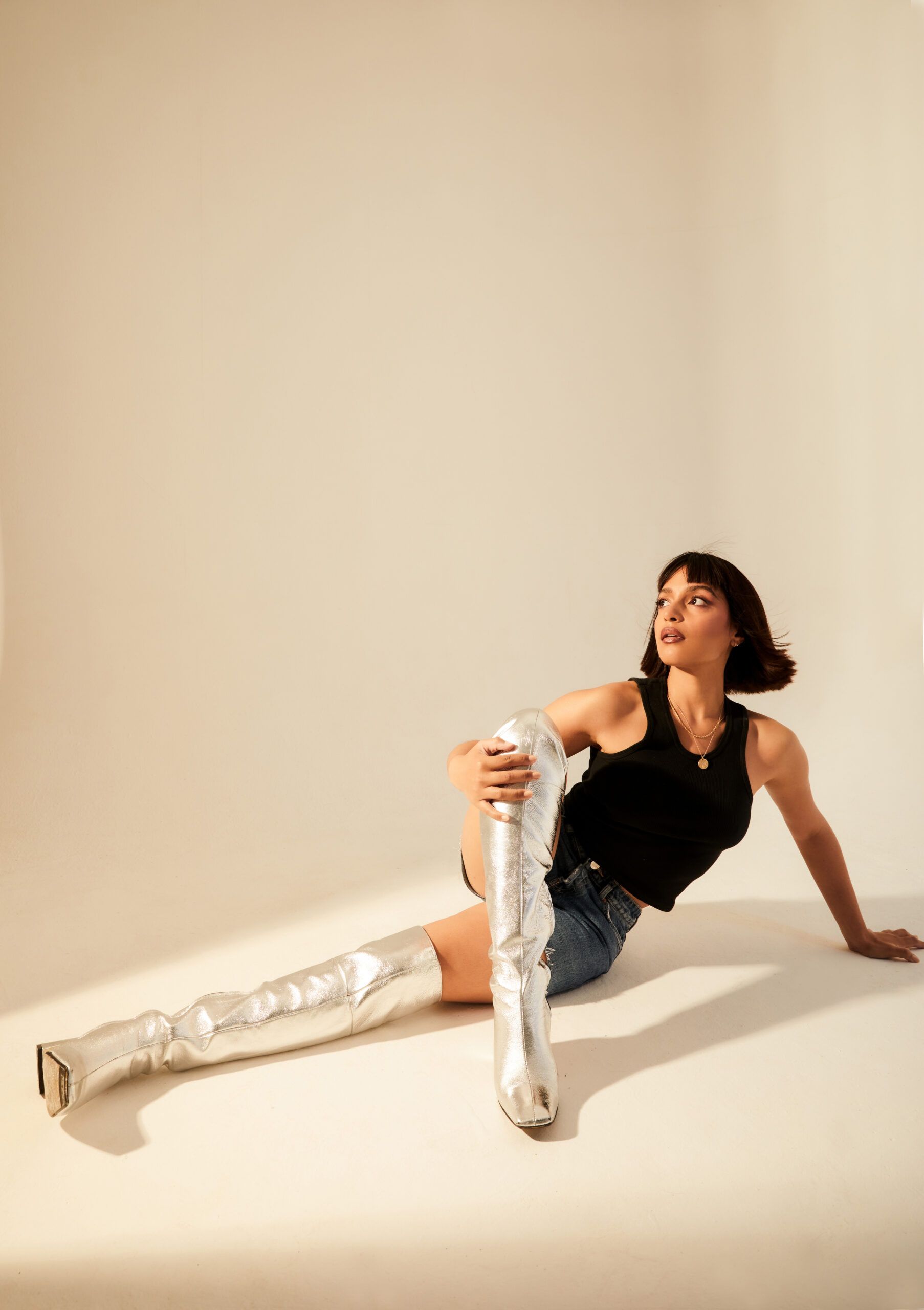
Something I have enjoyed about your character is that as an audience, we understood so much about her when we were introduced to the older version of her because we saw what she went through as a child, so watching her grow and believe in herself and gain trust has been lovely to watch. Obviously, this show has so many characters but they’re all so well developed and nuanced, and on such ensemble-heavy shows sometimes it’s really hard to flesh out every character because of time constraints and moving the story along. How is it for you as an actor being on such an ensemble heavy show? I’m sure there are times when some of you barely see each other outside of table reads.
I’m happy you realize how sort of sprawled out everything is, we work so sporadically as well, so it takes a lot of homework and tracking. For ourselves and it sort of forces us to not think of what other characters are going through unless our character knows about it. So it’s always a surprise, even though we’ve read the script and we have table reads to go “oh, that’s what that scene looks like! that’s what you guys are filming! Okay, got it!” It’s so much fun being on a show like this because I’d be like, I get to semi-watch it with fresh eyes as an audience member. I had no idea how the beginning of the finale was going to be, the first 10 minutes with the North Korean astronaut. I saw C.S Lee in the trailer, he’s so kind and we spoke a lot but I had no idea where he was going and what he was off to film, so seeing that opening, I was so shocked. It’s one of the joys of the show is the fact that because we’re all disconnected, we get to be surprised by what other people do. I’m always surprised and I’m always impressed, everyone is just so good!
They are! Something I feel has been done well is the time jumps. Each season is a different decade and I think it’s such a testament to the writing and the acting with how we accept seeing the characters with so much time passed that we don’t know about, we’ve spent more time away from the characters than we have with them, but they still feel so authentically them. I wondered how you as an actor find that time jumps and what you do to fill in Aleida’s journey in a huge part of the time that we don’t see.
I wouldn’t say the time between Season Two and Season Three was easy but it was fairly easier. I made sure that in Season Two, she almost couldn’t stand still, I wanted there to be some immaturity when she spoke – someone would finish a sentence and she immediately spoke after that with almost no pause, she had a real inability to relax. At the very core of Aleida, she is a very shy person. You see her in Season One as a shy person, but then I had to think about what happens to a shy person who has been homeless for several years and had to make their way and learn survival mechanisms by watching other people but they don’t understand it because if they had the choice they would not like to talk to anyone. She thinks ‘this is me standing my ground, and this is me being tough so that nobody messes with me’ I took all of that for Season Three and thought okay, now she has a kid and she has to be a role model to that kid. There’s also something else that comes with age, at the beginning of Season Three, she is 32. There’s something that comes with like age, which is just feeling more comfortable with yourself and feeling like you have to explain yourself less to people. So what I did was take more time to breathe into moments and not match everything with defensiveness. The writing brings that along as well so we have this tandem effort.
Going into Season Four is a bit bigger of a challenge because now she’s in her early 40s, and she has a teenage son and all the things that bring with it – how being in your 40s is different than being in your 30s. So this involves a bit more homework and tracking and asking ‘what does my voice do?’ and ‘where do my shoulders sit and how do I walk? It’s not as big as obviously playing so much older, like age 70, but it’s these little things like what does maturity bring? Which is maybe more comfortable with yourself. It’s fun to track physically and vocally. One of the best parts about the show is getting to do all of this homework.
Seeing how everybody’s process to tackling that time jumps and what homework they do has been so interesting to see. When I spoke with Shantal (who plays Karen Baldwin) she keeps journals of her character’s life and so much thought gets put into what happened in the time we didn’t see. You can tell that so much work has gone into moving the characters along through time.
Yeah, the writers don’t tell you everything that they think happened in those ten years. They don’t tell you much at all, and it’s our job to figure out what happened, what brought the character from point A to point B and fill that in. Funny enough Cynthia who plays Kelly [Karen’s daughter] does the same thing, she keeps a journal and everything, and so it was funny for them when they first met as mother and daughter because they both have these journals.
It’s so nice that the writers trust you all with your characters like that too, some writers would want complete control over their characters so it adds another layer of authenticity to each person’s portrayal
They’ve relied a lot on us because they’re juggling so many things at the same time, right? They’re juggling an alternate history so it’s a period piece, a sci-fi, a character-driven drama. You’re doing character studies for every single person. There was a moment in the finale when the North Korean Astronaut comes in and everyone was like, ‘how do we communicate with them?’ And then Ed does, and it’s this moment where you go “wow! the writers know their characters, he fought in Korea, so of course he would know some Korean!” They get excited when they’re like ‘we know this character’ but they build around us. If they see that one of us is hitting out of the park with some nonverbal stuff, then they’ll keep writing nonverbal scenes for that person.
Also if they see that someone is interpreting the scene in a more comedic or even more dramatic than they had expected, there’s no ego with that and they go “okay, that’s what they’re doing, let’s follow their lead!” It is a team effort and they give us so much freedom that way.
Do you think that kind of freedom and exploration of your character has helped you as an actor or changed your approach to roles?
Yeah, definitely. I think I started the season with so many nerves, this was the first season that for me, I felt like okay, ‘I guess I’m officially part of the show’ because I joined in Season Two, and you’re still figuring out the ropes and you’re figuring out who do I talk to for this problem? etc. Season Three mirrored Aleta where I felt like I was nervous and I felt like Aleida was at this place in her life where she knows who she is, but she doesn’t know where she belongs. As the season kept going, I genuinely feel like I became a significantly better actor just by saying “hey, I trust myself. They trusted me so I should trust myself, I shouldn’t doubt it” and by the end of the season, I fully just said to myself “I know what I’m doing” and that makes you a better actor above all else, feeling like you can trust your instincts and to not second guess it.
So this show, filming it but then watching it, this season, particularly I think has been a major shift for me as an actor where I feel like I have this range, and they see that I have this range and they’re writing for this range, and I can’t believe I’ve been trusted with such a big responsibility. I love having this much responsibility.

That leads nicely into my last question, with having that much responsibility and seeing how great you have been received, what is next for you as an actor?
We had a couple of months between filming the end of Season Three and the beginning of Season Four, I spent part of it in London for three months because I love it so much, I’m manifesting living there eventually. But then I also had time in New York, my hometown, to film a very New York-centred film. It’s called Story Ave, and it’s directed by Aristotle Torres and stars Asante Blackk and Luis Guzmán, and it’s a story I relate to closely. It’s about being a poor kid of colour who discovers this love of art but doesn’t know that it’s a love of art, and the different paths that you can go down with you don’t have support or anyone guiding the way for you. You could go down a path that most kids in your town go through which is you could not realize your dreams and you could end up in a gang maybe, or just be stuck. Or you could push past all this fear and the unknown and take that leap of faith towards what could potentially be a better life. It’s great to do this in tandem with For All Mankind because both are character studies, but in this, I get to play a 21-year-old who is fun and artsy and has colourful hair, vs Aleida who is very serious and a genius but she’s nearly 40 and has kids.
It was great to go from that high feeling that I felt at the end of Season Three into this new film, and then to take everything that I learned from For All Mankind, put it into practice in this film, and then bring it back for Season Four, I’m just really ready to go now! Even though it will be a long time until it gets aired, it’ll hopefully be done filming by winter/early spring and then there’s so much that goes into post-production like Visual Effects, I want to give VFX a shoutout, when I see people complain about how things aren’t exactly perfect I want to scream because if people knew how much work they do, they’re starting from zero, and building space/Mars/the moon, so much of this show is VFX, they’re doing the work of five movies in the span of what it takes one movie to do VFX for. If they knew the amount of overtime that these guys are working to make it look that good! It’s amazing. It’s impressive and I wish more people could see the behind-the-scenes of that because when we read the scripts it’s a dream and a hope, and then we film it against like a blank wall, and then you see it in its final form and you just think ‘wow, they made the show.’
I think people like to forget that VFX exist, and they like to not give them credit. it’s a thing that happens all the time, so I want to be the person who continuously reminds people on the show that they should be applauded because they do amazing work.
They do. I think every single department on this show has done an incredible job at world-building. I wish I had more time with you to go through every single person because the props are just insane, even down to having real watches from the 1960s, I wish people could understand the attention to detail that our departments put in, even when it’s things the audience can’t see! Everyone on this show is just so talented and the attention to detail in every way blows my mind.
For All Mankind is streaming now on Apple TV+. Follow Coral Peña at @coral.
Interview Amelia Walker
Photographer Klara Waldberg
Hair & Makeup Rosie McGinn
Silver Boots Miista



